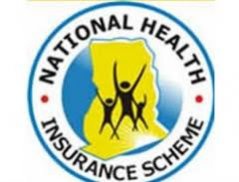
Prof. Lorna Awo Renne, a consultant in charge of the Pediatric Care Unit of Child Health at the Korle-Bu Teaching Hospital has called on government to factor childhood cancer treatment into the National Health Insurance Scheme (NHIS) programme.
According to her, Ghana has a low childhood cancer surviving rate because most parents cannot afford the expensive treatment, which on the average cost around US$600, depending on the stage of the disease.
Speaking at the International Childhood Cancer Day, under the theme; “Act now for children with cancer” on Monday, at the Korle- Bu Teaching Hospital (KBTH) in Accra, Prof. Lorna Awo Renne said the government must act now.
She said only four (4) out of every 10 children affected by the childhood cancer survive due to late reporting, saying parents have been abandoning exorbitant treatment and lack of treatment centres in the country.
The Pediatric Care Unit consultant expressed worry that though prevalent in the country, only KATH and Komfo Anokye Teaching Hospital (KATH) have treatment centres for children.
She said some common cancers found in Ghana are Lymphomas account, eye cancer (retinoblastoma), kidney cancer and leukemia. About 250,000 children get cancer every year, though 75-80 per cent of childhood cancer can be cured if detected and treated early. Timely diagnosis especially in developing countries like Ghana is very low, the World Health Organization (WHO) has said.
Meanwhile, approximately 90 per cent of affected children reside in developing countries, WHO added. Though scientists have still not established the cause of cancer, the WHO has estimated that 1 in 500 children will develop cancer by age 15. WHO Representative, Dr. Magda Robalo in a speech read on his behalf indicated that while High Income Countries (HIC) have child surviving rate of 80-90%, Low Middle Income Countries (LMIC) have a survival rate as low as 10-20%. She explained that LMIC have low survival rates because of poor access to healthcare, lack of information about early signs and symptoms, catastrophic costs of treatment and medicines, week health care system and abandonment.
“Children and adolescents are the heart of every community and nation. It is our responsibility to ensure that they are able to live life to the fullest and reach their full potentials,” she beamed.
Parents of children living with cancer attended the programme in their numbers to show their solidarity and support for international childhood cancer day.